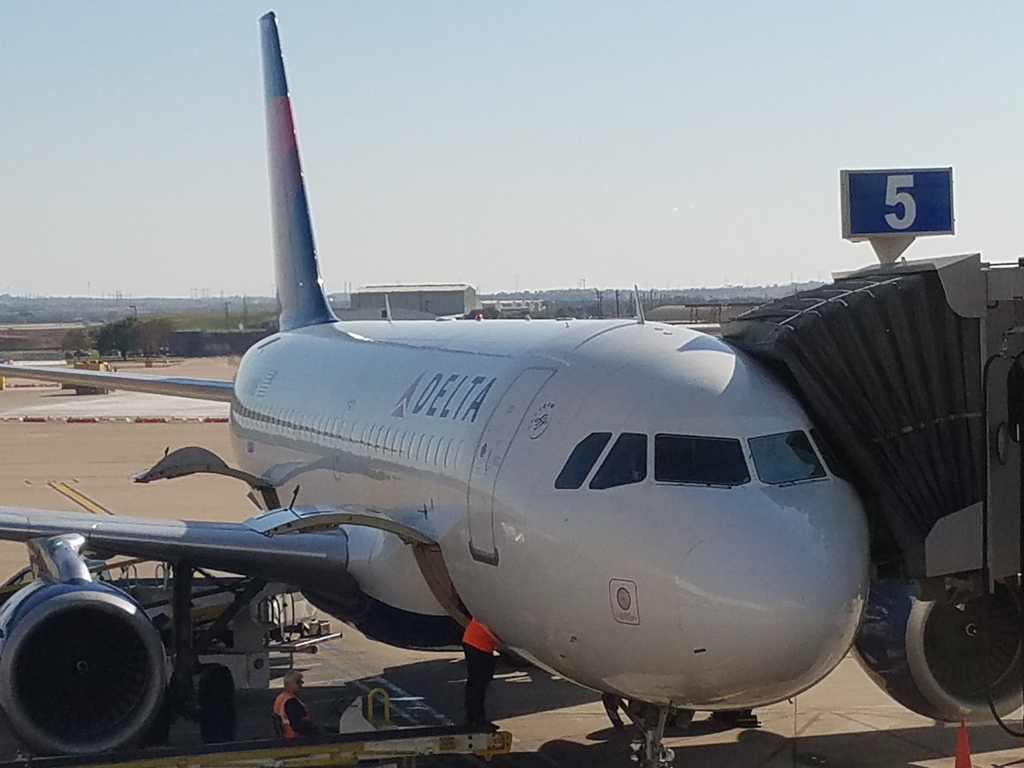Two women performing ground handling work for Delta and New York JFK are suing because they were dismissed after reporting inappropriate, ahem, stuff their ‘mentor’ was doing on his own in the office.
Jenkins was only 18 when she began working for Alliance Ground International in August 2015.
She and Heffernan, who was hired two months earlier, both received training from Keve when they started.
On February 4, 2016, Jenkins was at her desk and Keve at his when she noticed she could no longer hear him typing.

You can use your imagination or click the news article to see what he ‘whipped out’ and was allegedly doing instead of typing.
The women claim this happened on more than one occasion, they reported the incidents and they became a joke in the office. And the women were ultimately fired.
Delta seems to suggest that reporting the incident is indeed led to their getting fired — because they called attention to themselves, and Delta discovered something to warranted terminating employment. (HT: Brian B.)
A rep for Delta says, “Our investigation into this allegation resulted in the termination of two employees. The complainants were legitimately terminated for reasons completely unrelated to any allegations of misconduct by others.”
Reportedly the reasons given for the firings were:
Jenkins was fired on May 3, apparently without warning, for not putting in enough hours at work.
…Heffernan herself was fired for returning from lunch late on May 21. She said she was only late because her car broke down and produced a receipt for its repairs but was ignored.
The ‘mentor’ that these women trained under was apparently a Delta employee while the women who reported how happy he got were employed by a contractor. And it’s taken all the restraint that I have not to make the obvious SkyMiles jokes — about devaluations and using your miles for a haircut — that more or less write themselves.
More importantly, the case raises fascinating questions about modern employment.
- Regardless of what happened, in the abstract it’s pretty inappropriate to self-pleasure at work. Once it happens, what responsibility does the employer have?
- When employees report something, does that become a shield against poor performance? Any future firing can be framed as pretext for retaliation.
- Does an employee of a contractor have a claim against the firm they’re doing business for? What about when that firm’s employee is the one behaving badly? What is the contractor’s human resources department supposed to do about behavior by someone that isn’t an employee?
I’m a little bit less interested in the legal questions here and more the complicated social questions (that lead to what the law ‘ought’ to be).


Shouldn’t that protection come in the form of protection against *new* investigations? I’ve seen this numerous times. It’s often in the news with regard to the TSA.
Employee A is sexually harassing female coworkers. Employee B is a sexually harassed female coworker. B reports A’s behavior to a supervisor. B is then harassed as a tattle tale and someone who cannot handle a joke. B is then fired when some minor transgression is discovered in their employment file (e.g. showing up late to work one day). B was always a “good” employee who otherwise showed up to work on time and “followed all the rules” except for, you know, respecting his fellow human beings as people rather than sexual objects.
So yeah, there probably ought to be a reasonable limit, such as protection against new employer investigations. If one is already opened and the employee complains and is later fired, then fine, but if one is only opened after the employee complains… well, let me ask: Why would the employer have even *looked* at the complainants file to begin with? This was an investigation of a different employee.
The mentor/supervisor/whatever is likely union and protected by his CBA and local rep. Much easier to ditch a contractor than a (presumably) long-tenured union employee who knows how to work the system.